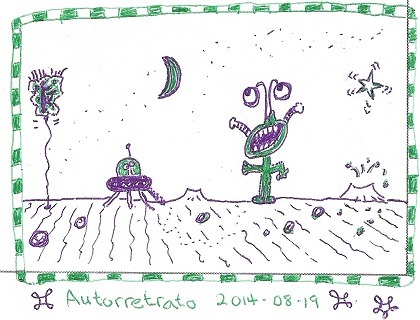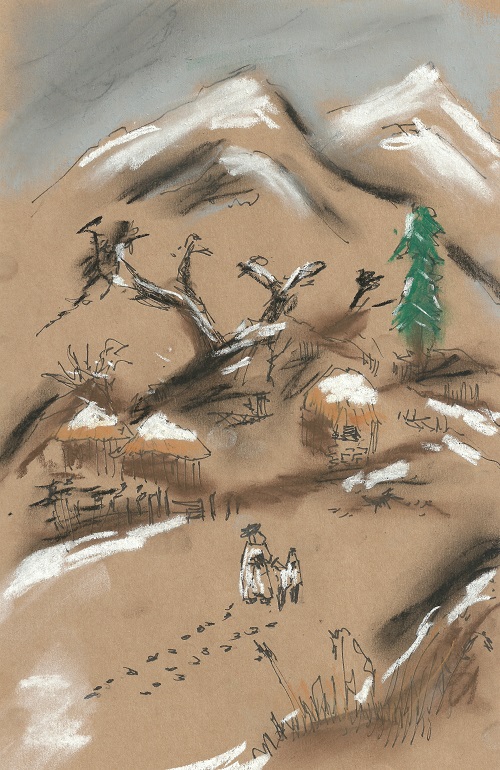Yesterday I was annoyed by the lack of internet at work.
Lately, you see, I've been making my blog-posts at work – either by coming in a little bit early or going home a little bit later. This is because I have almost completely ended my internet use at home – this is mostly as a means of self-discipline, because I find it improves my affect substantially. When I spend too much time online at home, I tend to feel like I've wasted my time and that I'm lacking in self-control, so by simply avoiding it, I feel better about my lifestyle and my choices. The consequence, however, is that I get my "internet fix" during breaks at work. It's more than sufficient, normally – but when the internet at work isn't working… well, it not only messes up my work routines, it discombobulates my fairly stable home routines, too.
Anyway, I came in early today and found the internet working again. So here I am.
I found this strange little essay online the other day. It's some of the best writting I've run across, recently, about popular culture. A bit unexpectedly, the topic is Sanrio and Japan's "Hello Kitty" empire. Euny Hong, at Quartz.com, writes,
Hello Kitty, you are not what you claim to be. Kitty, what’s your game? I have several plausible theories as to her true provenance (it is with great restraint that I avoid the possibility of interspecies mating):
Origin of Species: Hello Kitty is like Caesar from Planet of the Apes; a regular cat made highly intelligent and biped via an experimental Alzheimer’s drug.
The White family is in some kind of witness protection program. This would explain why a so-called British family is faffing about with apple pies, cookies, and pancakes. They might have to pass as English in their new identity as the “White family.”
The Whites are like a family from a Henry James novel, living in that liminal chasm between America and Europe. Just as they are living in the liminal chasm between human and cat. So much liminality for one family.
Sanrio is the world’s undisputed thought leader in “kawaii,” which is basically the Japanese word for “squee.” The Japanese, through some kind of cartoon phrenology and the design equivalent of genetic engineering (also known as “drawing”) arrived at an image that is the Platonic ideal of cuteness. And Hello Kitty is the brand ambassador for Sanrio. So it’s a bit shocking that it took the world so long to identify what she was. There’s more cult crit to be done here.
To paraphrase Nabokov: Hello, hello, hello Kitty. My sin, my soul.
[daily log: walking, 5.5 km]


